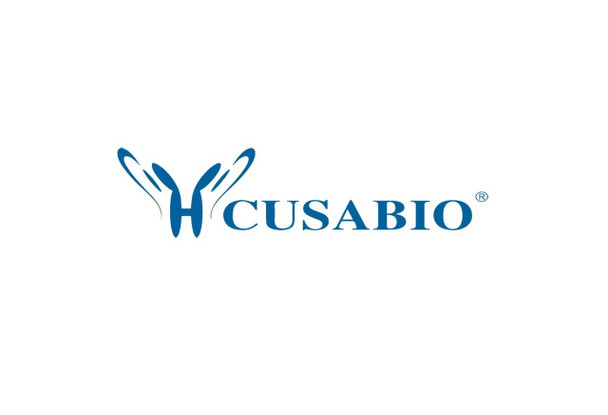Cusabio Human Recombinants
Recombinant Human DNA oxidative demethylase ALKBH2 (ALKBH2) | CSB-EP761219HU
- SKU:
- CSB-EP761219HU
- Availability:
- 13 - 23 Working Days
Description
Recombinant Human DNA oxidative demethylase ALKBH2 (ALKBH2) | CSB-EP761219HU | Cusabio
Alternative Name(s): Alkylated DNA repair protein alkB homolog 2 Alpha-ketoglutarate-dependent dioxygenase alkB homolog 2 Oxy DC1
Gene Names: ALKBH2
Research Areas: Epigenetics and Nuclear Signaling
Organism: Homo sapiens (Human)
AA Sequence: MDRFLVKGAQGGLLRKQEEQEPTGEEPAVLGGDKESTRKRPRREAPGNGGHSAGPSWRHIRAEGLDCSYTVLFGKAEADEIFQELEKEVEYFTGALARVQVFGKWHSVPRKQATYGDAGLTYTFSGLTLSPKPWIPVLERIRDHVSGVTGQTFNFVLINRYKDGCDHIGEHRDDERELAPGSPIASVSFGACRDFVFRHKDSRGKSPSRRVAVVRLPLAHGSLLMMNHPTNTHWYHSLPVRKKVLAPRVNLTFRKILLTKK
Source: E.coli
Tag Info: N-terminal GST-tagged
Expression Region: 1-261aa
Sequence Info: Full Length
MW: 56.3 kDa
Purity: Greater than 90% as determined by SDS-PAGE.
Relevance: Dioxygenase that repairs alkylated DNA and RNA containing 1-methyladenine and 3-methylcytosine by oxidative demethylation. Can also repair alkylated DNA containing 1-ethenoadenine (in vitro). Has strong preference for double-stranded DNA. Has low efficiency with single-stranded substrates. Requires molecular oxygen, alpha-ketoglutarate and iron.
Reference: "Expression and sub-cellular localization of human ABH family molecules." Tsujikawa K., Koike K., Kitae K., Shinkawa A., Arima H., Suzuki T., Tsuchiya M., Makino Y., Furukawa T., Konishi N., Yamamoto H. J. Cell. Mol. Med. 11:1105-1116(2007)
Storage: The shelf life is related to many factors, storage state, buffer ingredients, storage temperature and the stability of the protein itself. Generally, the shelf life of liquid form is 6 months at -20?/-80?. The shelf life of lyophilized form is 12 months at -20?/-80?.
Notes: Repeated freezing and thawing is not recommended. Store working aliquots at 4? for up to one week.
Function: Dioxygenase that repairs alkylated DNA and RNA containing 1-methyladenine and 3-methylcytosine by oxidative demethylation. Can also repair alkylated DNA containing 1-ethenoadenine (in vitro). Has strong preference for double-stranded DNA. Has low efficiency with single-stranded substrates. Requires molecular oxygen, alpha-ketoglutarate and iron.
Involvement in disease:
Subcellular Location: Nucleus
Protein Families: AlkB family
Tissue Specificity: Detected in colon, small intestine, ovary, testis, prostate, skeletal muscle, heart, liver and urinary bladder.
Paythway:
Form: Liquid or Lyophilized powder
Buffer: If the delivery form is liquid, the default storage buffer is Tris/PBS-based buffer, 5%-50% glycerol. If the delivery form is lyophilized powder, the buffer before lyophilization is Tris/PBS-based buffer, 6% Trehalose, pH 8.0.
Reconstitution: We recommend that this vial be briefly centrifuged prior to opening to bring the contents to the bottom. Please reconstitute protein in deionized sterile water to a concentration of 0.1-1.0 mg/mL.We recommend to add 5-50% of glycerol (final concentration) and aliquot for long-term storage at -20?/-80?. Our default final concentration of glycerol is 50%. Customers could use it as reference.
Uniprot ID: Q6NS38
HGNC Database Link: HGNC
UniGene Database Link: UniGene
KEGG Database Link: KEGG
STRING Database Link: STRING
OMIM Database Link: OMIM









